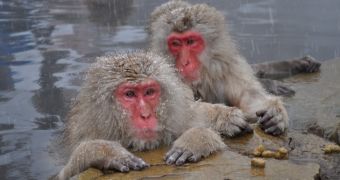This past Thursday, scientists announced to the world that monkeys living in the proximity of the crippled Fukushima nuclear plant in Japan have surprisingly low blood cell counts.
This biological peculiarity was documented in comparison to the blood cell counts of monkeys that, although belonging to the same species, live further away from the facility, information shared with the public says.
According to The Guardian, researchers suspect that monkeys inhabiting natural ecosystems close to Fukushima have lower blood cell counts than expected due to exposure to radiation originating from the nuclear plant.
Hence the fact that, in a paper in the journal Scientific Reports, the specialists argue that this find could help better understand the effects of radiation on the human body, both on the short and on the long term.
“This first data from non-human primates – the closest taxonomic relatives of humans – should make a notable contribution to future research on the health effects of radiation exposure in humans,” says Professor Shin-ichi Hayama with the Nippon Veterinary and Life Science University in Tokyo.
As detailed in the aforementioned paper, this investigation boiled down to comparing the blood of 61 Japanese macaques living at a distance of 70 kilometers (44 miles) from the facility to that of monkeys 400 kilometers (249 miles) away.
When compared to the animals in the second group, the so-called Fukushima monkeys had fewer white and red blood cells. Besides, they were found to carry radioactive caesium in their bodies, which they might have ingested when feeding on local tree buds and bark.

 14 DAY TRIAL //
14 DAY TRIAL //